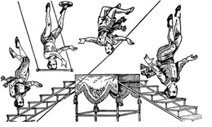
South Africa’s Catholic Bishops: Going Down the Anglican Road
GUEST BOOK
In his book review in the April NOR, Dale Vree asked rhetorically, “Who is God really? Father or Mother?” “Apparently,” said Vree in commenting with disapproval on the views of a prominent theologian, “it depends on where you happen to be at a particular moment….”
My question is: Does the Catholic Church really recognize the Holy Eucharist as the true Body and Blood of Christ? Apparently it depends on where you happen to live. In most places in the world, even the U.S., the answer (at least officially) is “yes,” the bread and wine are transubstantiated into the Body and Blood of Jesus Christ. But in South Africa, the answer seems to be “no” or “maybe” or “not always.”
The reason things are different in South Africa is that their bishops have been drifting toward an Anglican approach to Holy Communion: As long as you’re a baptized Christian, you may receive the wafer and the wine, and believe what you like about them. The Southern African Bishops’ Conference’s January 1998 Directory on Ecumenism states that if non-Catholic Christians are attending Mass for “a special feast or event” they may take Holy Communion, as doing so “may be both meaningful and desirable, expressing the degree of unity that the participating Christians already have with each other.”
With that kind of belief, the Body and Blood of Christ are reduced to a treat, to be handed out indiscriminately at weddings, funerals, baptisms — or to be given to a Protestant U.S. President when he happens to be in the congregation.
You May Also Enjoy
It's hard not to be impressed by the Scottish bishops' consistent, powerful salvos fired at the Scottish government over same-sex marriage legislation.
Bishops are busy men, and no doubt sometimes so busy that they aren't aware of what's being published in their own diocesan papers.
While talk of divisions in the U.S. Church has often been sketchy or anecdotal, here we have 40-plus bishops who have joined together and put their views in writing.

